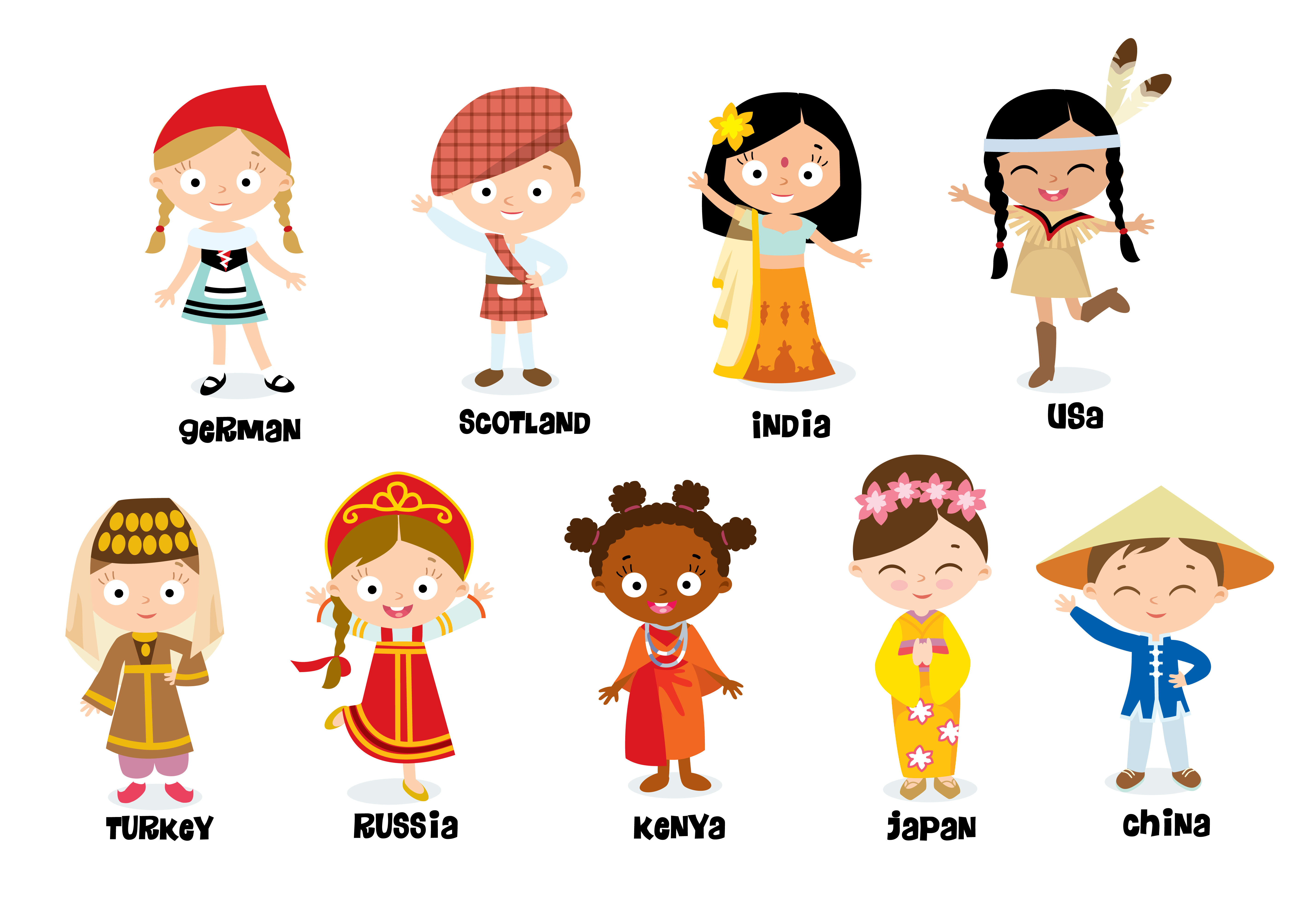Rhyming skills Worksheets for Ages 3-4
7 filtered results
-
From - To
Welcome to our Rhyming Skills Worksheets for Ages 3-4! Designed to enhance early literacy, these engaging worksheets introduce preschoolers to the delightful world of rhymes. Through fun activities and colorful illustrations, children will develop crucial phonemic awareness as they identify and match words that sound alike. Each worksheet is crafted to foster creativity and improve vocabulary, making learning a joyous experience. Perfect for parents and educators, our resources are easy to use at home or in the classroom. Start your child's literacy journey today by exploring our delightful rhyming activities and watch them grow more confident in their reading skills!
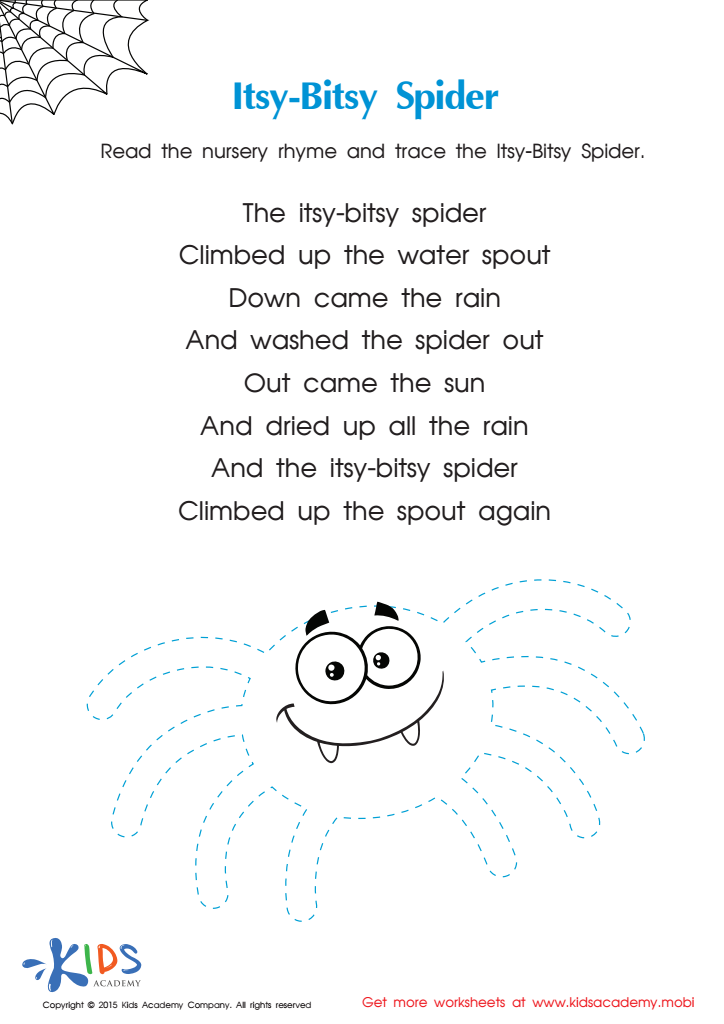

Itsy Bitsy Spider Nursery Rhyme PDF Worksheet
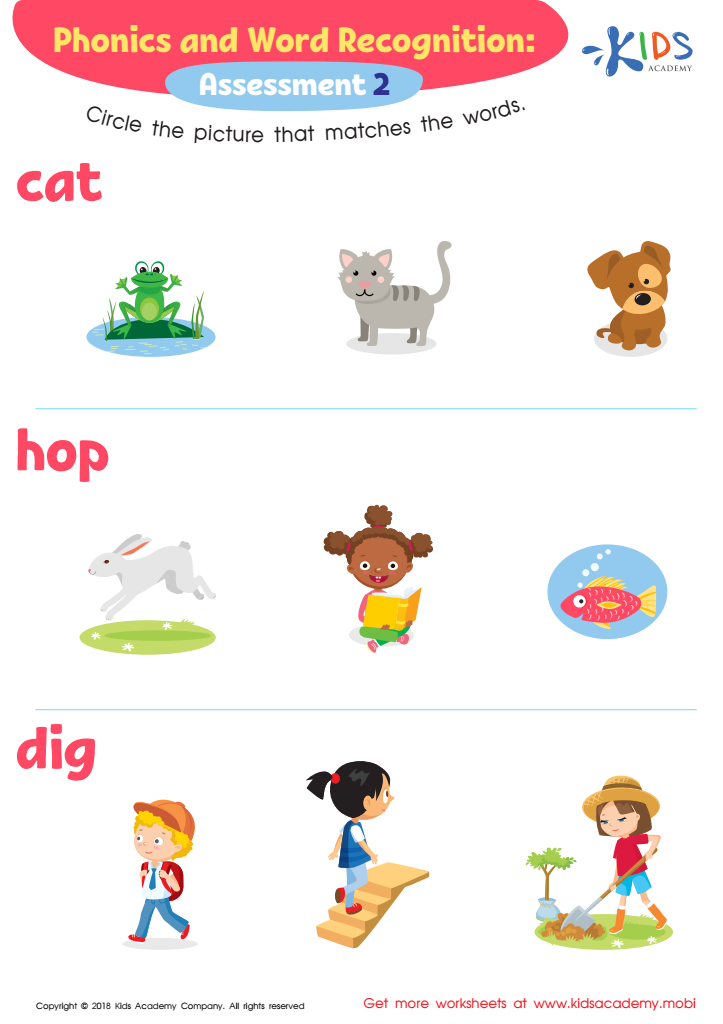

Phonological Awareness: Assessment 2 ELA Worksheet
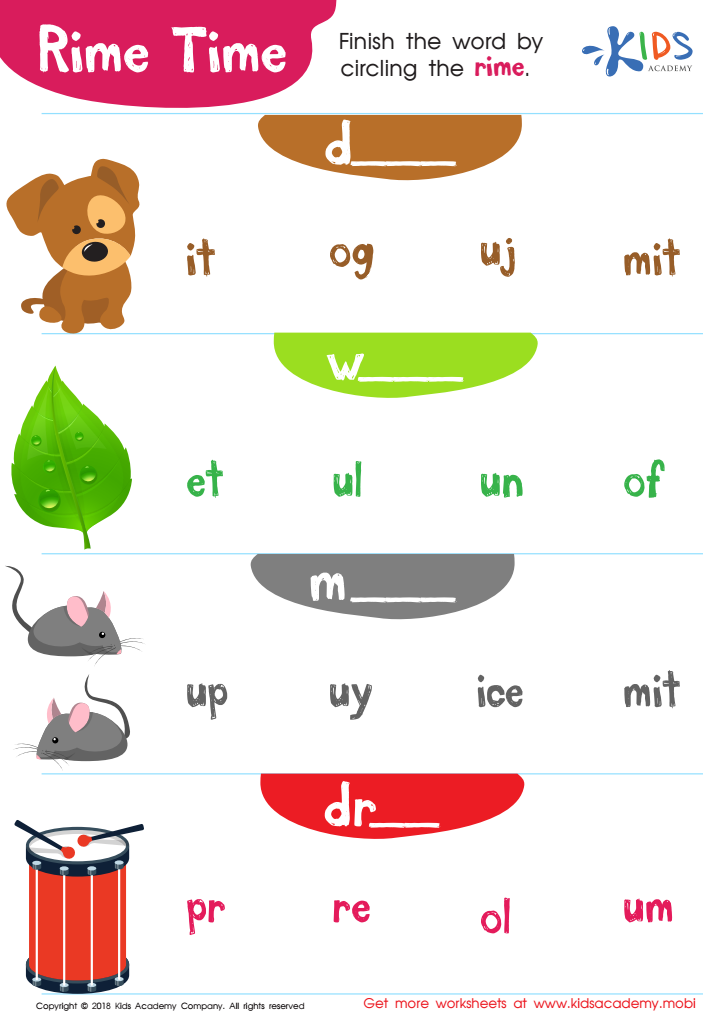

Rime Time Worksheet
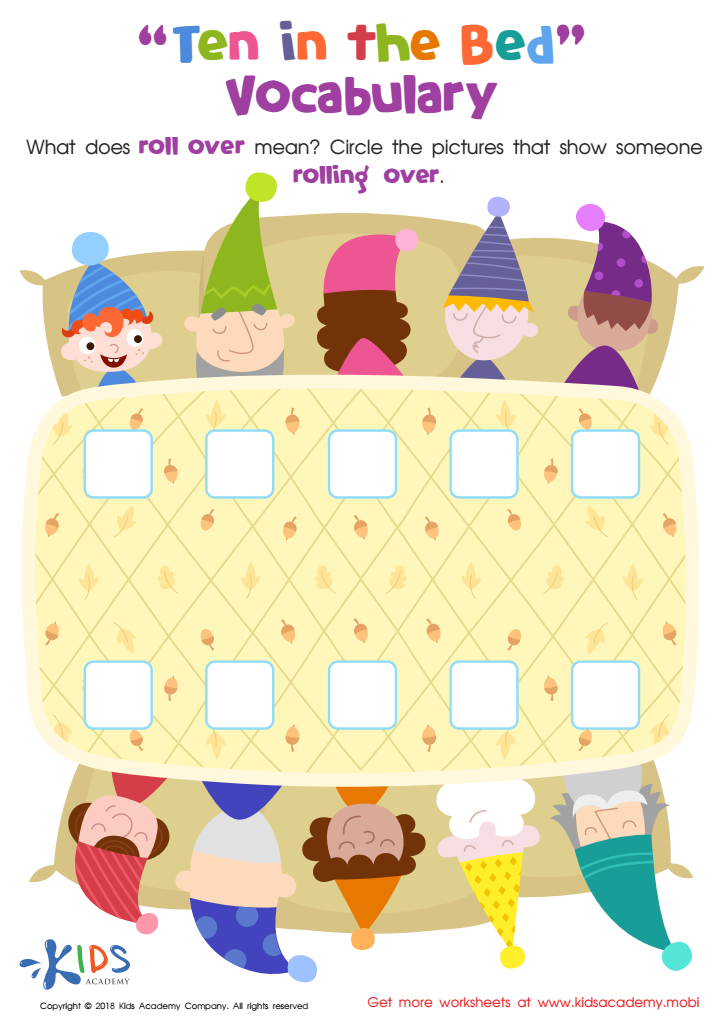

Ten in the Bed: Vocabulary Worksheet
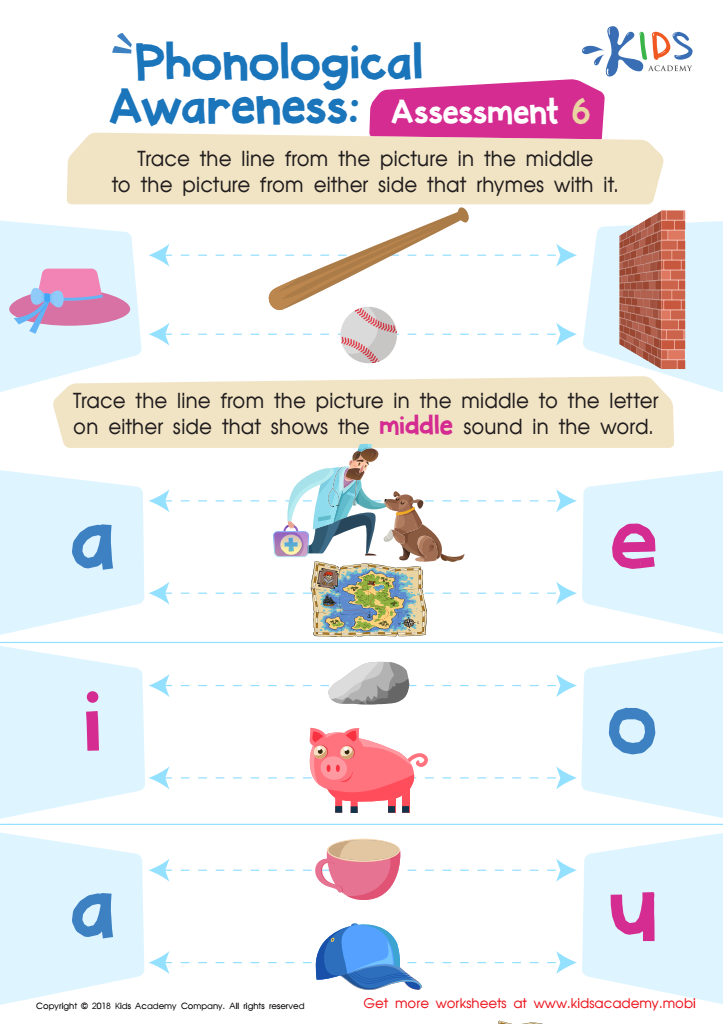

Phonological Awareness: Assessment 6 Worksheet
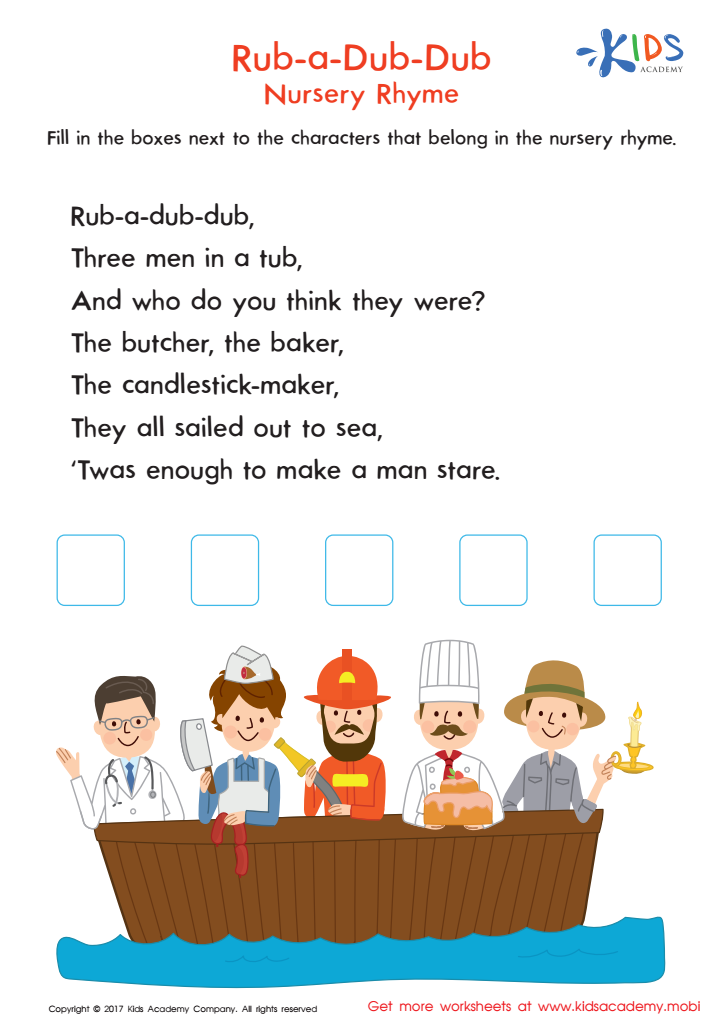

Rub a Dub Dub Printable
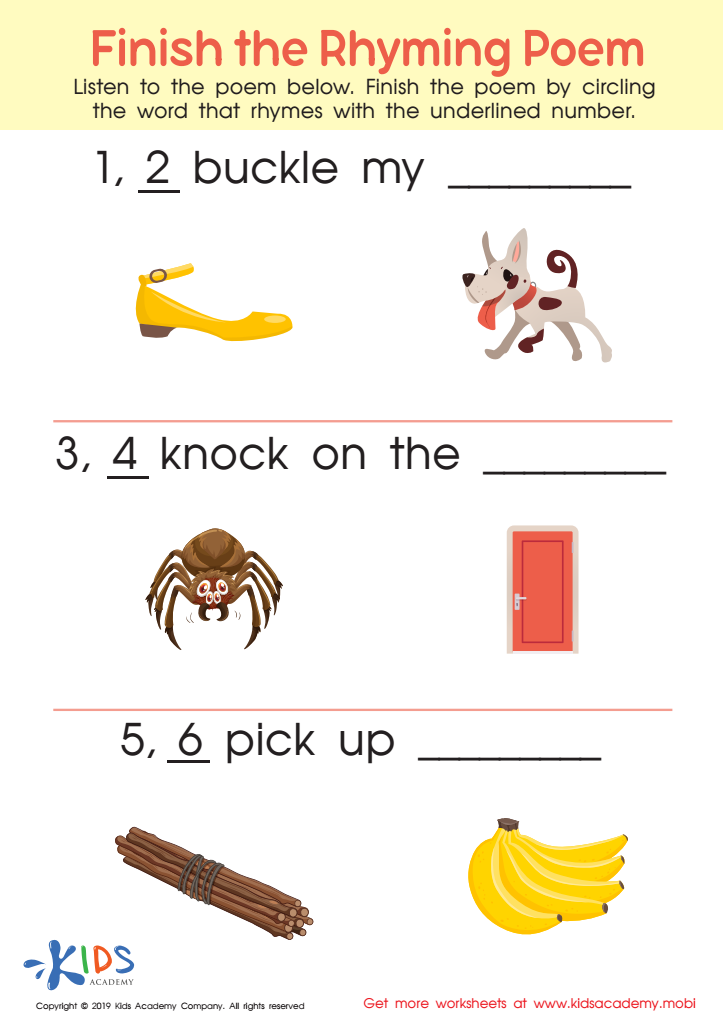

Finish Rhyming Poem Worksheet
Rhyming skills are essential for young children aged 3-4 as they play a significant role in literacy development. During this age, children are naturally attuned to sounds and patterns in language, making it an ideal time to foster their phonemic awareness through rhyming activities. When parents or teachers encourage rhyming, they help children recognize similar sounds, ultimately enhancing their ability to decode words when they learn to read.
Moreover, rhyming enhances vocabulary development. As children engage with rhyming stories, songs, and games, they are exposed to new words and concepts, expanding their language skills in an enjoyable way. This playful interaction contributes to a deeper understanding of language structure and expression.
Additionally, engaging in rhyming helps develop memory, listening skills, and creativity. Children learn to identify sounds and patterns, leading to improved cognitive skills as they begin to analyze and manipulate sounds.
Ultimately, nurturing rhyming skills lays a strong foundation for reading success, fosters a love for language, and supports overall cognitive development. Parents and teachers should prioritize rhyming activities to equip children with critical literacy skills that will benefit them throughout their educational journey.
 Assign to My Students
Assign to My Students




